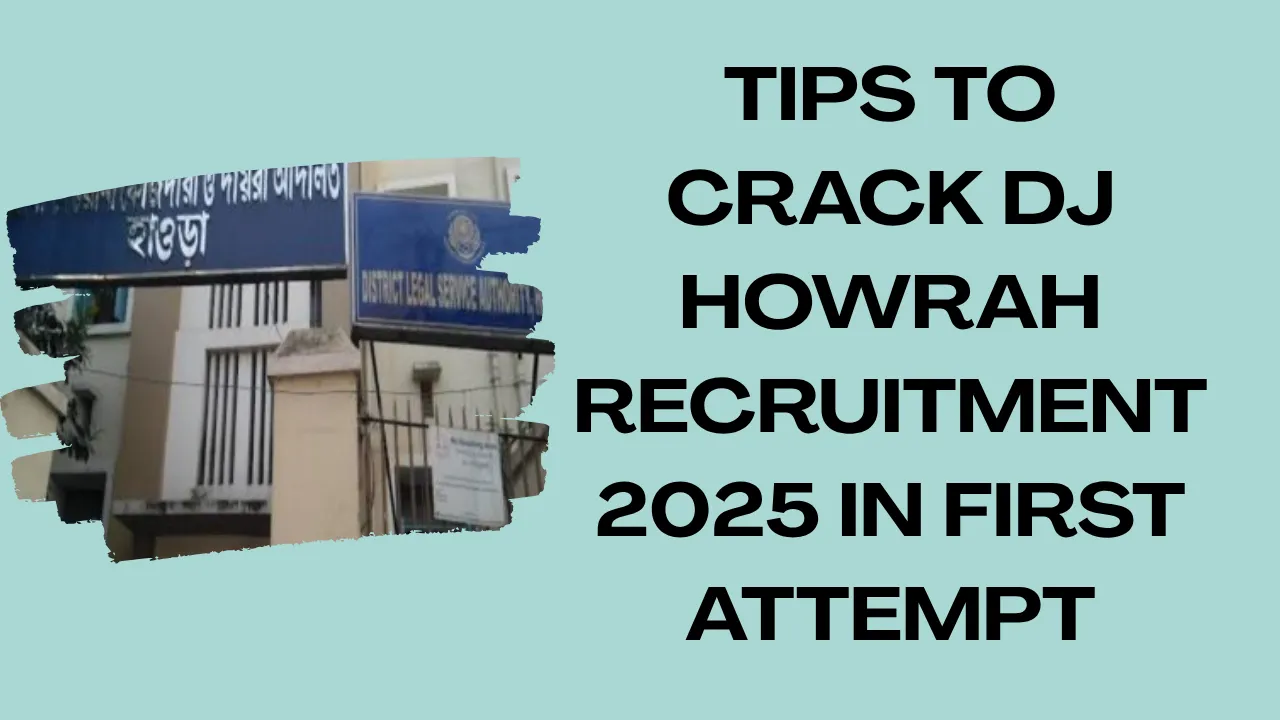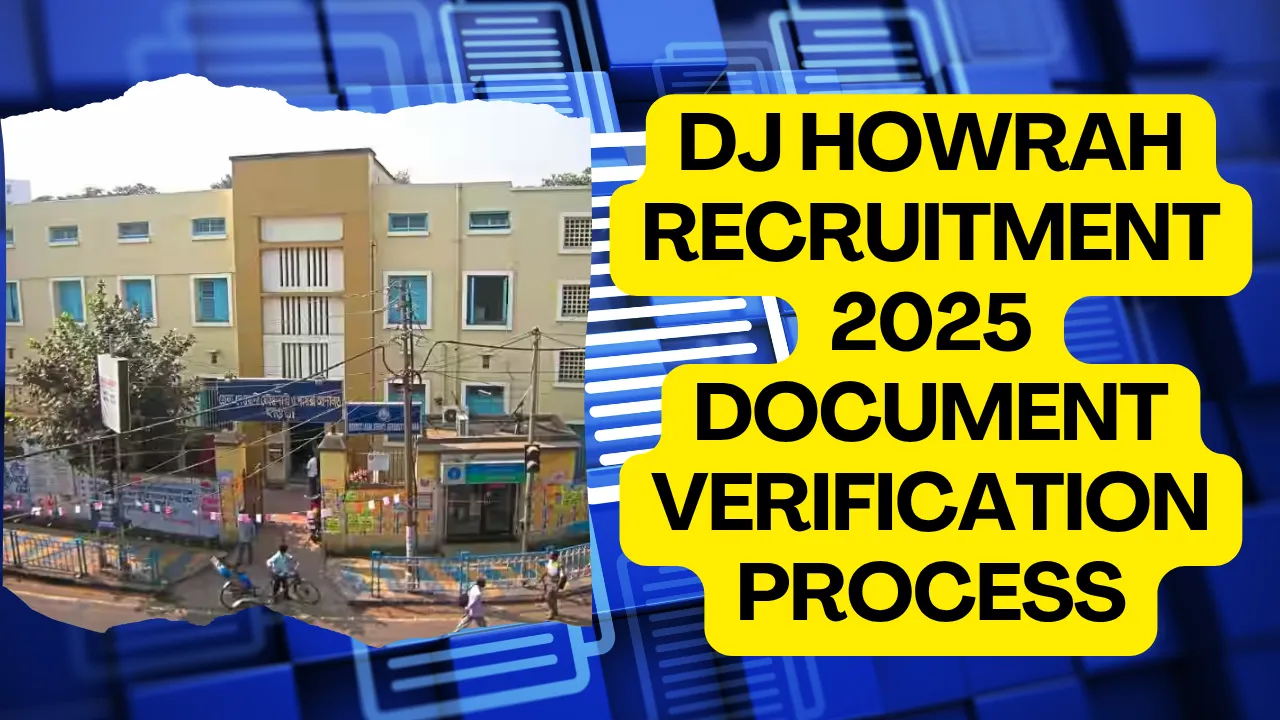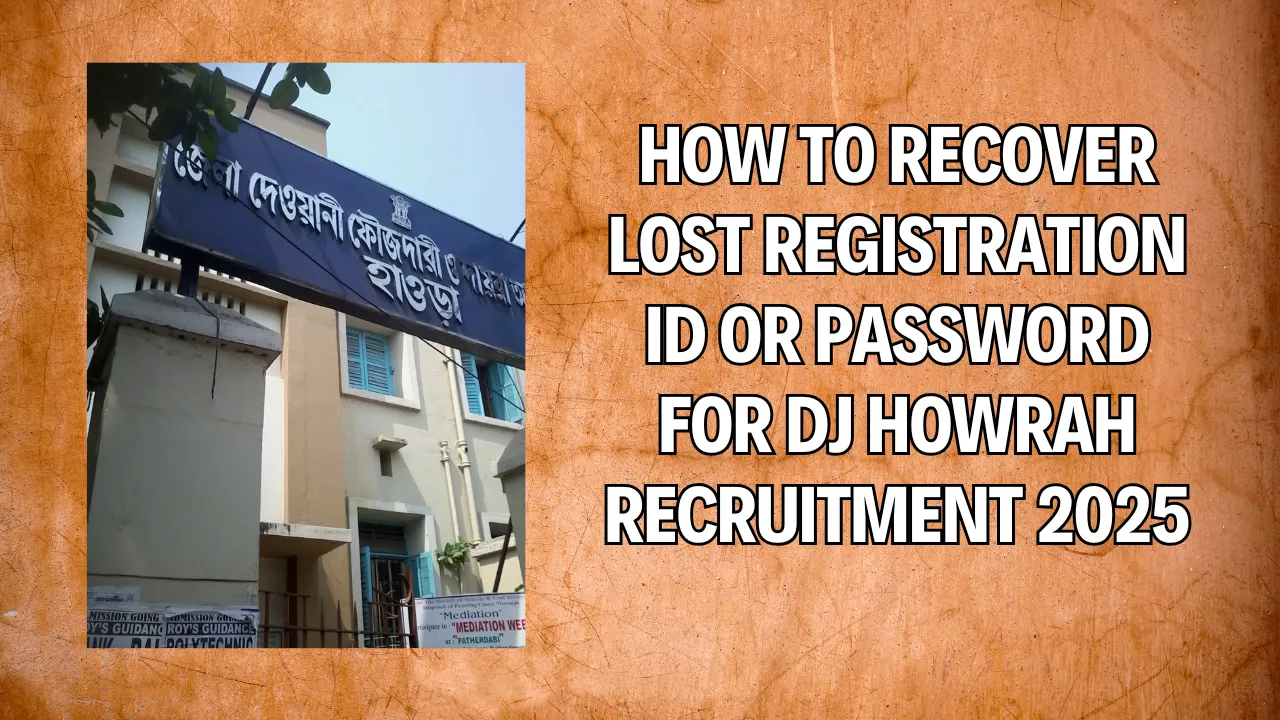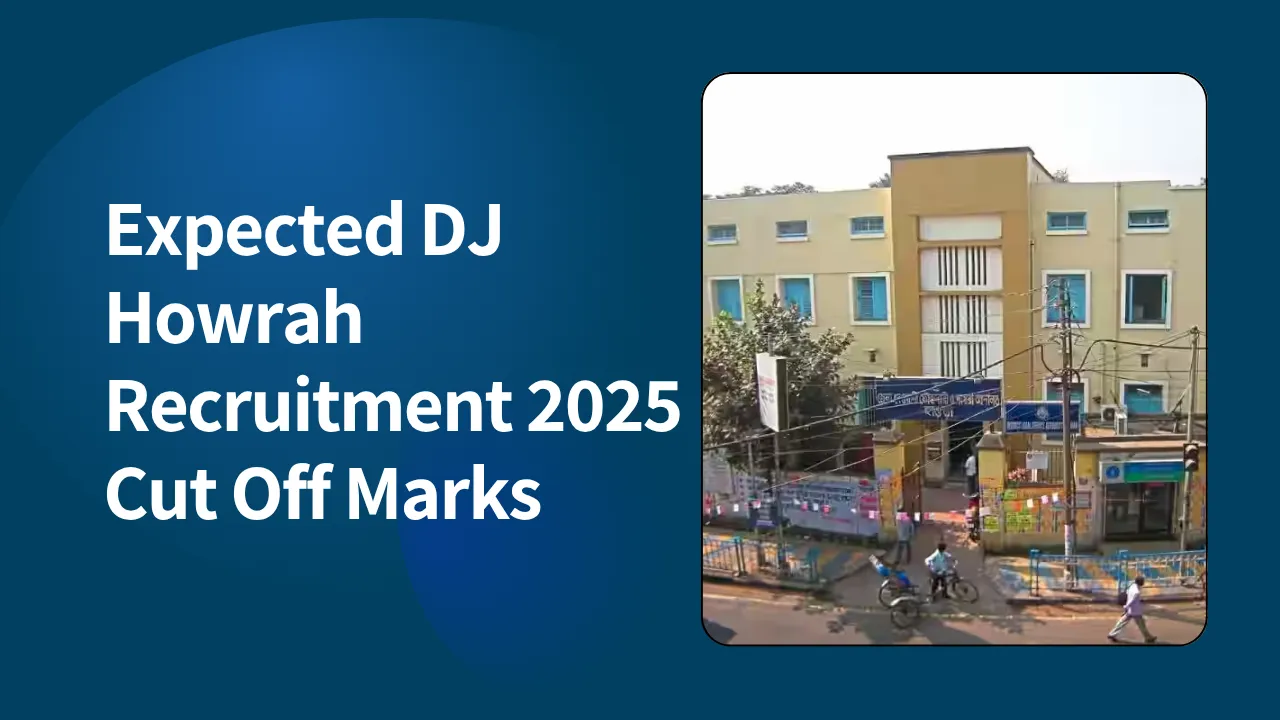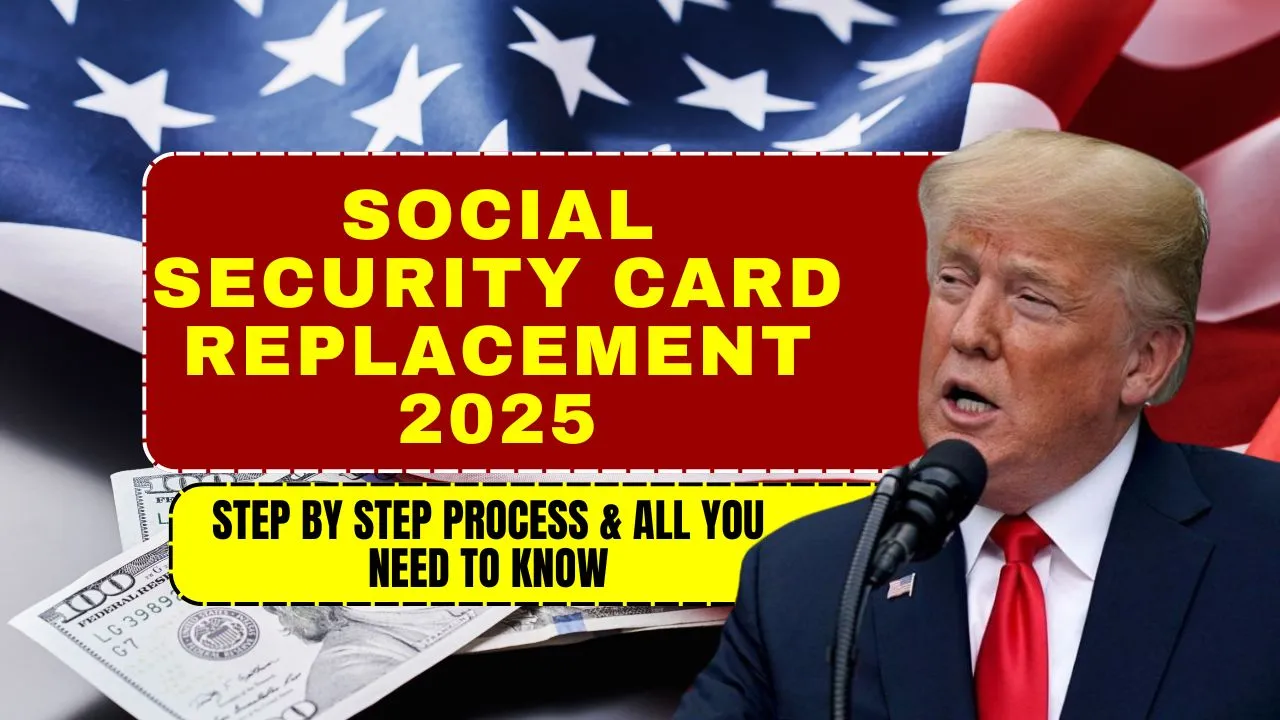Tips to Crack DJ Howrah Recruitment 2025 in First Attempt: Tips to Crack DJ Howrah Recruitment 2025 in First Attempt is more than just preparation advice—it’s a complete roadmap crafted for first-time aspirants determined to succeed. This guide offers practical strategies, clear study plans, and motivational insights aimed at helping you go into the exam with confidence and clarity.
Below, you’ll find a well-structured overview that highlights key stages of the recruitment process and prepares you for every step. Stay committed, follow the method, and let this advice guide your journey toward securing a position in the Howrah District Court.
Tips to Crack DJ Howrah Recruitment 2025 in First Attempt
Tips to Crack DJ Howrah Recruitment 2025 in First Attempt means focusing on every element of the selection process—from understanding the exam pattern to mastering subject-wise preparation and refining your mindset. In this section, we explore how targeted revision schedules, consistent mock tests, and strategic resource usage can elevate your prep. You’ll also understand how to balance time, manage stress, and build skills effectively for both the written and skill test stages.
Overview Table: Selection Process at a Glance
| Selection Stage | What It Involves | Why It Matters |
| Written Exam | MCQs in General Knowledge, Reasoning, Maths | Core of your score |
| Skill Test | Typing, shorthand, or computer operation | Distinguishes suitable candidates |
| Interview / Viva | Document verification, personality assessment | Final validation stage |
Understanding the Recruitment Stages
Written Exam Pattern
The written test consists of multiple-choice questions across General Knowledge, English Language, Arithmetic, and Logical Reasoning. Each section is timed, and accuracy is critical due to negative marking. Develop familiarity with question formats and scoring patterns to optimize your preparation.
Skill Test Details
Depending on the role (e.g., LDC or Stenographer), candidates must demonstrate typing speed, shorthand proficiency, or basic computer skills. Practice with real-time typing and shorthand drills, and use software tools or study material to improve efficiency.
Interview and Document Verification
This stage confirms identity, qualifications, and verifies skill certification. Prepare concise answers about your background and the court’s function. Remain composed, professional, and honest.
Subject-Wise Preparation Tips
- General Knowledge & Current Affairs
- Read trustworthy news sources daily.
- Maintain short-form revision notes for quick review.
- Use flashcards for state-specific facts and general legal updates.
- Read trustworthy news sources daily.
- English Language & Vocabulary
- Focus on grammar basics: tense usage, punctuation, sentence structure.
- Build vocabulary using word lists, synonyms, and antonyms.
- Practice comprehension passages and question-based exercises.
- Focus on grammar basics: tense usage, punctuation, sentence structure.
- Arithmetic & Data Interpretation
- Strengthen fundamentals: percentages, ratios, algebra, data analysis.
- Solve timed quizzes twice a week to build speed under pressure.
- Review errors to avoid repeating them.
- Strengthen fundamentals: percentages, ratios, algebra, data analysis.
- Logical Reasoning & Mental Ability
- Tackle puzzle categories: syllogisms, series, analogies, coding-decoding.
- Regular timed sessions help sharpen accuracy and thinking speed.
- Record new question types and their shortcuts for faster recall.
- Tackle puzzle categories: syllogisms, series, analogies, coding-decoding.
- Skill Test Preparation
- Typing Practice: Use online platforms to build speed and accuracy; track words per minute.
- Shorthand Speed: Write passages under timed conditions; gradually increase shorthand pacing.
- Computer Proficiency: Learn MS Office basics—Word formatting, Excel formulas, email etiquette.
- Typing Practice: Use online platforms to build speed and accuracy; track words per minute.
Time Management & Routine
- Daily Study Schedule
- Allocate dedicated hours for each section: e.g., 60 minutes GK, 60 minutes English, 60 minutes Maths/Reasoning.
- Add 30–45 minutes for typing/shorthand or computer practice.
- Reserve 30 minutes for revision and error review.
- Allocate dedicated hours for each section: e.g., 60 minutes GK, 60 minutes English, 60 minutes Maths/Reasoning.
- Weekly Mock Tests
- Simulate exam conditions at least twice weekly.
- Time each test strictly and replicate the test paper’s structure.
- Analyze wrong answers carefully—understand why mistakes were made.
- Simulate exam conditions at least twice weekly.
- Monthly Progress Reviews
- Compare mock scores monthly to track improvement.
- Focus extra attention on weakest subjects.
- Reward yourself when reaching milestones—central to motivation.
- Compare mock scores monthly to track improvement.
Study Resources That Matter
- Textbooks and Manuals
- Use standard guides for General Studies, Reasoning, and Arithmetic.
- Choose shorthand and typing books specific to LDC and stenographer roles.
- Use standard guides for General Studies, Reasoning, and Arithmetic.
- Online Test Portals
- Platforms like Adda247, Testbook, and CareerPower offer daily quizzes and full-length mocks.
- Use their analytics features to identify consistent problem areas.
- Platforms like Adda247, Testbook, and CareerPower offer daily quizzes and full-length mocks.
- Peer Learning & Coaching
- Local coaching centers in Howrah offer regular practice sessions.
- Join study groups or online communities to discuss doubts and find shortcuts.
- Local coaching centers in Howrah offer regular practice sessions.
Staying Motivated & Building Confidence
- Set Short-Term Milestones
- Weekly goals—like completing a topic or a set of mocks—provide structure and momentum.
- Weekly goals—like completing a topic or a set of mocks—provide structure and momentum.
- Visualize Success
- Remind yourself of your purpose: earning a secure government job that brings respect and stability.
- Remind yourself of your purpose: earning a secure government job that brings respect and stability.
- Stress Management
- Take regular breaks during study sessions.
- Use relaxation techniques like deep breathing to remain centered before tests.
- Take regular breaks during study sessions.
- Celebrate Small Wins
- Acknowledge when your typing speed improves or your mock score surpasses the previous attempt.
- Acknowledge when your typing speed improves or your mock score surpasses the previous attempt.
Two Key Lists for Exam Prep
Daily Focus Routine
- Morning: 15 minutes of current affairs and flashcard revision
- Midday: 1 hour of arithmetic or logic puzzles
- Afternoon: 45 minutes of English grammar and vocabulary building
- Evening: 30–45 minutes of typing or shorthand drills
Weekly Checkpoints
- 2 full-length mock tests replicating exam conditions
- Error analysis and targeted topic revision
- Typing/shorthand speed trials under timed conditions
- Preparation of a concise self-intro for interview readiness
FAQs
1. Can I crack DJ Howrah Recruitment 2025 without coaching?
Absolutely. With a disciplined schedule, high-quality resources, regular mock tests, and self-analysis, many candidates succeed through focused self-study.
2. What is an ideal daily study duration?
Aim for around 5–6 focused study hours daily—divide them into subject study, skill practice, revision, and mock test analysis.
3. How important are mock tests?
Mock tests are crucial. They help improve accuracy under time constraints, simulate the actual exam environment, and highlight weak areas for focused practice.
4. How can I build typing and shorthand skills quickly?
Use online typing platforms and shorthand apps. Practice daily, gradually increasing speed while maintaining accuracy. Record your progress and adjust practice time accordingly.
5. What books or tools do you recommend for preparation?
Standard GK and reasoning guides, arithmetic and data interpretation manuals, MS Office tutorials, and typing/shorthand practice books are essential. Online portals like Testbook provide structured mocks.
Final Thought & Call to Action
These Tips to Crack DJ Howrah Recruitment 2025 in First Attempt are crafted to be unique, strategic, and actionable. Set your schedule, practice smart, and stay consistent. Your first attempt can be your best attempt if you combine quality resources, solid planning, and positive mindset.
Ready to start? Comment below with your most pressing prep challenge, and share this guide with fellow aspirants. Best of luck—claim your success in the DJ Howrah Recruitment 2025 today!
